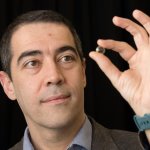
News • Ocular sensor
Researchers develop contact lenses to diagnose glaucoma
A team from the UK and Turkey have developed a contact lens with embedded micro-sensors which can detect changes in eye pressure - a possible indicator of glaucoma.

A team from the UK and Turkey have developed a contact lens with embedded micro-sensors which can detect changes in eye pressure - a possible indicator of glaucoma.

Researchers have developed software able to disguise sensitive data in health care applications. This protects privacy while making datasets available for development of better treatments.

Tinnitus is common, affecting up to one in four people. Now a study shows that the debilitating effects on mental health can often be reduced via training and sound therapy in a smartphone app.
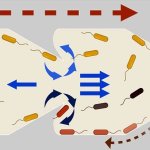
With the help of AI, a team at Caltech has designed a new type of catheter tube that impedes the upstream mobility of bacteria, without the need for antibiotics or chemical antimicrobial methods.

If healthcare professionals could get support making fast-paced, life-critical decisions from an AI tool, more lives could be saved, according to new research results from Sweden.
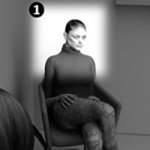
A feasibility study by Swiss researchers shows that AI systems are able to reliably predict therapeutic success in patients with borderline personality pathology by detecting emotions on their face.

The Automa+ 2023 congress has brought fascinating insights into the pharmaceutical landscape. This article distills highlights from the congress, illuminating the paradigm-shifting strides that are set to propel the pharmaceutical industry into a future characterized by interconnected, empathetic, and forward-thinking practices.

The largest-ever study of patient views on online GP consultations saw a strong backing for the new option. Important benefits named were greater convenience and flexibility, but also efficiency.
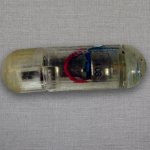
When your stomach is full after a large meal, certain receptors are activated to tell the brain. A newly developed capsule could provoke this fullness signal early, potentially helping with treating obesity.

A powerful tool, but the need for human judgment remains: In an editorial published in PNAS Nexus, Monica M. Bertagnolli assesses the promise of AI and machine learning to study and improve health.
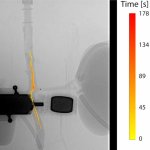
Dutch researchers successfully inserted magnet-controlled miniature robots into an aorta model with kidneys. In the future, this technology could be used to remove blood clots.
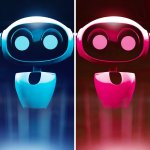
Researchers explored the potential of two generative AI models for answering clinical questions and literature selection for medical research – one fared signifcantly better than the other.
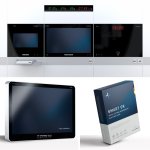
The Medica in Düsseldorf once again solidified its status as one of the largest medical trade fairs worldwide this year - and Rein Medical seized the opportunity to present a selection of its product portfolio.
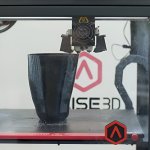
A fully digital design-to-manufacturing process developed at Loughborough University has the potential to revolutionise lower limb socket production by allowing printing outside of hospital settings.
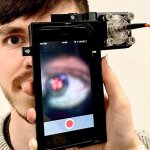
Researchers from the University of Birmingham have designed and developed a novel diagnostic device to detect traumatic brain injury (TBI) by shining a safe laser into the eye.
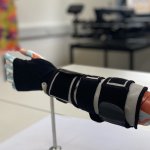
An electronic glove that enables movement in the paralysed hand of stroke survivors – supporting their rehabilitation – has been invented by a team from the University of Southampton.

When a person has a cardiac arrest, using an automated external defibrillators (AED) can be life-saving. New research shows that AED delivery via drone is often quicker than an ambulance.

AI features for automation, integrated systems and more: the role of medical technology has never been as vital as today, and MedTech companies from Taiwan are putting their best foot forward to contribute. At the 2023 Medica trade fair, visitors of the Taiwanese pavilion not only had the opportunity to see the latest medical products on display, but also get acquainted with Taiwanese culture in…

Scientists have developed an ingestible device that can safely monitor vital signs like breathing and heart rate from inside humans, providing accessible and convenient care for people at risk of opioid overdose.
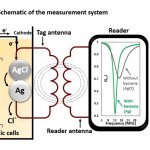
Smart catheters, smart diapers or wound dressings: a new approach to wireless biosensors from Malmö University opens up options for more patient-controlled ways of infection detection.

In the last few years, virtual reality has become a very significant tool in therapeutic applications, for example, to overcome deep-seated fears or the lack of empathy in abusers.
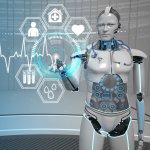
Sure, AI still has a long way go. But maybe one day in the not-so-distant future, AI will provide us with information about our current state of health, such as the number of red blood cells, cholesterol levels, fat percentage, and how many seconds last night's beer will shorten our life expectancy.
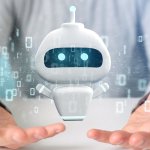
Bioethics researchers call on medical societies, government leaders, clinicians, and researchers to work together to ensure AI-driven healthcare preserves patient autonomy and respects human dignity.

Machine learning and AI are playing an increasingly important role in medicine and healthcare, and not just since ChatGPT. This is especially true in data-intensive specialties such as radiology, pathology or intensive care. The quality of diagnostics and decision-making via AI, however, does not only depend on a sophisticated algorithm but – crucially – on the quality of the training data.
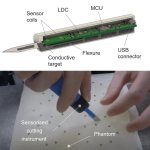
Scalpels with built-in sensors could streamline training for surgeons and pave the way for procedures performed by robotic devices, a study suggests.